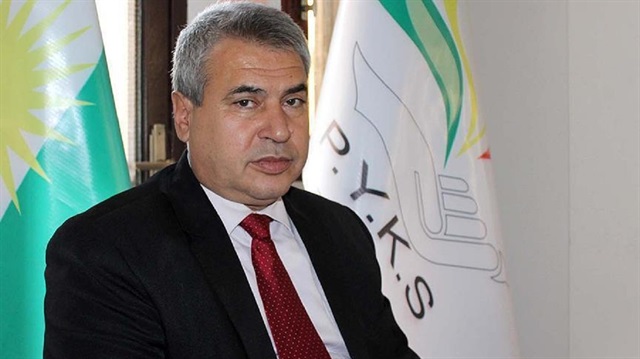

Syria’s Kurdish National Council to visit Washington and brief new US administration on PYD/PKK pressures
The head of Syria's Kurdish National Council (KNC), Ibrahim Biro said Saturday they would visit Washington in February and brief the American officials on how the PYD/PKK "puts pressure on the Kurdish groups which oppose it."
The main subjects to be high on the agenda will also include the "return of the Syrian Kurdish Peshmerga forces [Roj Peshmerga] trained by the Iraqi Ministry of Peshmerga Affairs, back to Syria, and how these will reestablish security in Syria," Biro told Anadolu Agency.
According to Biro, PYD/PKK creates barriers for the Syrian Peshmerga forces to enter Syria.
After the eruption in 2011 of the conflict in Syria between the Assad regime and armed opposition groups, many Syrian Kurds fled to the northern Iraqi provinces of Erbil and Dohuk, both of which are part of the semi-autonomous Kurdish region.
Upon their arrival, Kurdish Regional Government (KRG) President Massoud Barzani had ordered them to undergo military training.
After undergoing military training in Iraq's Kurdish region, many Syrian Peshmerga are still waiting to return to Syria in order to join U.S.-backed coalition forces now fighting the Syrian regime.
On the other hand, the PYD is the Syrian offshoot of PKK, a group designated as terrorist by Turkey, the U.S. and EU.
While Turkey considers PYD a terrorist group, the previous U.S. administration under Barack Obama described the PYD as a "reliable partner" in the fight against Daesh in Syria.
Whether the new U.S. President Donald Trump will continue the same policy over the group is yet unknown.
Saying that they had met the U.S. team under Barack Obama in the past over this issue, Biro blamed the Obama administration for not having helped the Syrian Peshmerga to return back to their homes in Syria.
"There were two reasons for it: The U.S. looked for its own interests and avoided pressure [on PYD] to please PYD," Biro said.
Biro stressed that the KNC would request Trump this time to put pressure on the group.
"We believe that Donald Trump will take concrete steps for the Roj Peshmerga to return back [to Syria]. We'll present documents to the U.S. officials showing how PYD in northern Syria puts pressure on the Kurdish groups which oppose it."
Biro said that they will also tell the U.S. officials how the PYD/PKK militants opened fire on civilians and killed them as well as how they abducted and remanded these in areas they controlled in northern Syria.
He added the senior KNC delegation would pay the visit upon an invitation from the U.S.
Support for a safe-zone in Syria
According to Biro, the situation in Syria would have been better now if a safe-zone had been created a few years ago.
Underlining that a possible safe-zone would help the ongoing war to end and the daily lives of the Syrians to normalize, Biro stressed that a lack of the safe-zone caused half of the Syrians to flee as refugees to other countries.
"A safe-zone would facilitate the refugees to return back to their homes. If this [safe-zone] would take place, it could be a turning point for the civil war in Syria to end," he said.
The Syrian Peshmerga or Roj Peshmerga are considered the military wing of the Syrian Kurdish National Council, which operates under the umbrella of the Syrian Opposition and Revolutionary National Forces Coalition.
The Syrian Kurdish National Council consists of 11 Kurdish political parties, all of which are considered at odds with the PYD.
#Syria
#Kurd
#PKK/PYD

